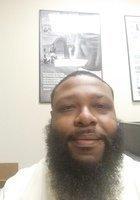Connect with hundreds of tutors like Chris
Who needs tutoring?
FEATURED BY
TUTORS FROM
- YaleUniversity
- PrincetonUniversity
- StanfordUniversity
- CornellUniversity

Chris
About Me
In the winter of 2004, I had the pleasure of earning my first degree from Texas Southern University. I received a Bachelors of Arts in Psychology. From there I entered the classroom and began my teaching career. I began working with at risk students at an alternative school for behavioral concerns. I noticed that many of the students there were smart but had behavioral characteristics that hindered their learning process. I started as a teacher aide but enjoyed it so much that I decided to become certified. I chose to receive my certification in grades 4-8 in all content areas. My personal belief is that these are those most critical times of a students educational career. My desire to want to become a counselor blossomed in those first four years. I made the decision in 2008 to work towards a Masters' degree in School Counseling. I attended University of Houston-Clear Lake and obtained my degree in 2012. During the road to my degrees, I had the pleasure of teaching middle school students in all content areas. Now that I have been a school counselor for the past fours years I have come to miss the classroom environment. There is so much joy in watching students learn something new and the excitement they present. The primary subjects that I tutor are English & Language Arts and middle school level Math. Essay writing would probably be considered my favorite subject since I consider myself a writer as well. Many students struggle with the subject because they are not sure what to say. My advice to students is always to follow your knowledge of the topic and let your mind flow freely. When working with students I try to get to know them as an individual so that learning can be tailored to their needs. There are no two brains that think alike and therefore should be taught using different methods at times. One of the largest components that becomes a hurdle in student learning is study skills or lack thereof. Before I start working with a student I always investigate their studying style. Based on the method they utilize I do my best to tweak the needed changes to maximize student learning. Whenever my time is not devoted to educating I love to listen to music and write poetry. I try to be a student of all genres of music because I believe songs tell the story of a person. My favorite sports are basketball and boxing although I find myself drawn to anything that has a competitive nature.
Education & Certifications
Q&A with Chris
Tutoring Subjects
Connect with a tutor like Chris
Connect with a tutor like Chris
Tutors with Similar Experience


Joanna
10+ YearsLaGrange College
Bachelor in Arts, English/Theater Performance Double Major
View Profile